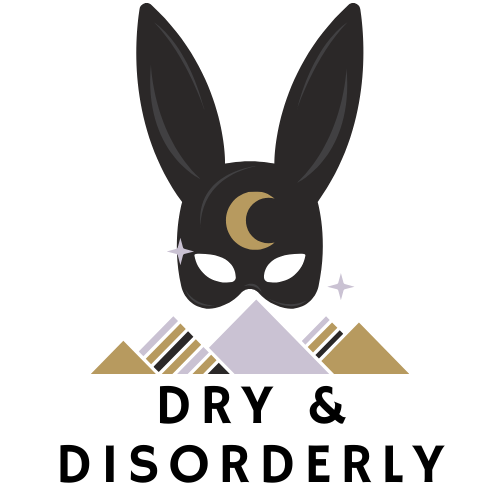Do Teetotalers Have a Life Hack, or Is Sobriety Just About Acting Pompous? (Choose Confidence Over Arrogance)
ATX
A unique aspect of addiction recovery is how it forces you to constantly examine your life and challenges. You can’t hide your problems anymore; in fact, you’ve gotten rid of all the rugs. They were probably covered in puke (among other things) anyway. You're forced to face your flaws head-on, or else relapse becomes a real risk. Every single day. In other words, recovery requires relentless self-improvement. You become obsessive about creating a better version of yourself. You’ve taken inventory, you’ve made plans, and you’re ready to tear down the old house and build a new one. Sometimes, it feels a bit self-indulgent, but the inner work becomes your new addiction.
It sounds like a lot of emotional labor, but living in active addiction is labor, too. It's labor with no rewards, but plenty of drama, so you keep going. That’s why you’ll find so many people in recovery are “fanatics.” They're obsessed with fitness, caffeine, or making homemade granola. They might knit obsessively, or overanalyze their friends. They keep a food journal, a dream journal, and a journal of wrongdoings. The list of ways to better oneself never ends.
But as with everything, there are two sides to every coin.
In recovery, you're often taught to be of service to others. Helping and encouraging others to stay sober is one of the best ways to maintain your own sobriety. However, those you help need to be open to it. Not everyone is like us, and not everyone is ready to completely overhaul their life. This is how recovering alcoholics can get a reputation for being pompous do-gooders who think they have all the answers. They’ve figured out the code to making their own life manageable and now they’re trying to share it with everyone else. Not long ago, they were falling off counters at corporate holiday parties, and now they’re here preaching the gospel of recovery. It may seem like sobriety is all they talk about, and for some, that's true. It can come across as judgmental, but the intention is pure. They genuinely want others to experience the same life-changing gratitude they feel. Sobriety becomes a religion, and they feel it’s their duty to save everyone.
I’m always trying to find the balance between giving advice without coming across as a know-it-all. The truth is, I know nothing. Most days, I feel like a child with an alcohol problem trapped in an adult’s body. But that doesn’t stop me from talking about sobriety to anyone who will listen, which is probably more annoying than helpful. That should be the AA program you graduate to after your first year sober:
“Hi, I’m LC, and I can’t stop talking about teetotaling!”
Whenever someone messages me for advice or encouragement, I feel like an imposter. “How can you tell someone how to live a fulfilling life when you once fell asleep on the side of the highway after a strip club visit? AT 2 PM!” I like to think that’s a qualification for something, but I'm not sure what. Every time someone tells me, “I think I want to quit drinking,” my knees tremble because I know amazing things are coming that they can’t see yet. But I have to hold back from telling them exactly what to do. Recovery isn’t one-size-fits-all. I can offer suggestions, be a shoulder to lean on during cravings, but I can’t insert myself into someone else’s recovery journey. A huge turn-off for me when I was looking for programs was how many people were ready to give me rules without knowing me. That’s what made me run out of so many rooms.
I believe there’s freedom and space in recovery. There are millions of ways to make sobriety work, and it can be done with love—not control or punishment. You keep trying different things until something clicks, and then you don’t want to stop. I think all former hellions in recovery have a duty to give back, however they communicate. We have a duty to give grace and walk beside each other without judging the paths we took to get here. Maybe being of service is the only way to break free from our own self-analysis. It’s the only way to make our own pain worthwhile—by easing someone else’s, knowing that addicts don’t suffer for nothing.


